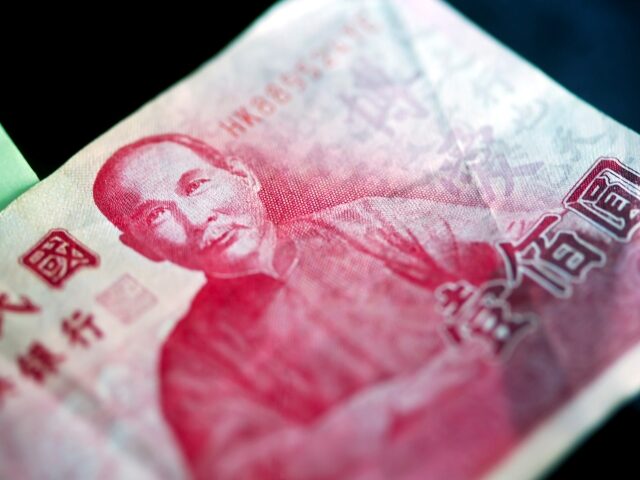Taiwanese Premier Su Tseng-chang announced on Wednesday that every citizen of the island nation will receive a cash gift of $6,000 Taiwanese dollars, or $195.61 in U.S. dollars, as a “New Year blessing.”
“The fruit of economic achievements will be shared by all citizens, from young to old,” Su said at a press conference on Wednesday. “We wish to give all citizens a New Year blessing after the beginning of the Lunar New Year.”
The Lunar New Year holiday, a major annual event across Asia, begins on January 20 in Taiwan, so the checks would presumably be cut sometime after that. Su did not specify exactly when or how the “New Year blessing” payments would be made.
Members of the opposition Kuomintang party said the money should be disbursed before January 20, so citizens would have the cash in hand before the upcoming holiday. The Kuomintang called for a special parliamentary session next week to expedite the payments, while the governing Democratic Progressive Party (DPP) insisted it was not possible to disburse the money so quickly.
According to Taiwan News, the funds will “most likely be distributed at the end of February or early March,” and will probably be paid through “remittance into citizens’ personal bank accounts.”
The proposal, which would cost about $4.6 billion U.S. in total, is pending approval from the Taiwanese parliament.
President Tsai Ing-wen endorsed the plan, even though the Taipei Times noted skeptically on Wednesday that she promised in her New Year’s Day address to “consider sharing excess tax revenue with all citizens only when it is within our fiscal capacity to do so” – and it arguably is not, given economic and budgetary projections for the coming year.
Reuters described the cash payments as more like an advance stimulus program before an economic slowdown than a merry rebate of bountiful surplus tax revenue to the public:
The export-reliant economy, a global tech powerhouse for products including semiconductor chips, grew 6.45% in 2021, the fastest rate since it expanded 10.25% in 2010.
While economic growth is expected to slow in 2022 and 2023, the government has made plans to plough an extra T$380 billion ($12.4 billion) in tax revenue from last year back into the economy to help protect the island from global economic shocks, including subsidies for electricity prices and labor and health insurance.
[…]
Taiwan’s central bank in December cut its 2022 estimate for gross domestic product (GDP) growth to 2.91% from its previous forecast of 3.51% in September.
Su said on Sunday the Taiwanese government collected a surplus of about $14.7 billion U.S. in tax revenue last year. He proposed spending about $6.5 billion of the surplus to subsidize electricity, shore up the government’s health insurance fund, and “bolster the nation’s economic resilience.” The remainder would be “shared with the public” after setting aside part of the money for an emergency expense fund.
“We want people across the nation to share the fruits of economic growth, but we must also set aside a portion of the surplus to enable us to cope with global challenges brought by rising Covid-19 cases in China and inflation caused by the war between Russia and Ukraine. We cannot give it all away,” he said.
In addition to calling for the “New Year gift” to be handed over to citizens soon, the Kuomintang mocked Su’s announcement as a hasty effort to buy favor with the public after Tsai’s somewhat dour New Year’s Day speech.
“Did he thoroughly consider the policy before announcing it to the public, or was he simply throwing out ideas after experiencing too much pressure from politicians and the public?” Kuomintang Cultural and Communications Committee Director Hung Meng-kai jeered.



COMMENTS
Please let us know if you're having issues with commenting.